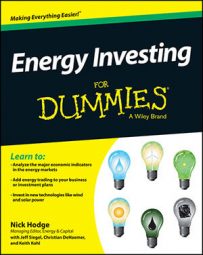The laws of nations, states, and local entities have a great impact on the movement of energy markets. They address every aspect of the industry, including
Energy consumption
Energy distribution
Energy production
And they do it through
Conservation guidelines
Incentives
International treaties
Legislation
Subsidies
Taxation
Every country, and even every U.S. state, has different policies. Here are a few examples of how global energy policy affects energy markets, including examples from major users, plus there are tools for you to explore these policies on your own.
Though the United States has no formal, overarching energy strategy, it has passed a series of energy acts that affect various markets, the most recent of which is the Energy Independence and Security Act of 2007. Its major provisions include
Accelerated research of clean energy technologies
Energy savings in building and industry
Improved standards for appliances and lighting
Improved vehicle fuel economy
Increased production of biofuels
Hundreds of pages long, this act called for incentives for hybrid and electric vehicles, conversion from incandescent to high-efficiency light bulbs, a production minimum for biofuels, and much more. Established car companies, makers of conventional light bulbs, and fuel providers saw the act as a risk, but to the informed investor, it was a reward.
High-efficiency lighting maker Veeco Instruments (NASDAQ: VECO) is up more than 75 percent since the act passed. Electric vehicle manufacturer Tesla Motors (NASDAQ: TSLA) has more than doubled since its initial public offering (IPO) in mid-2010.
To find out more about energy policy in the United States, including strategy and tax incentives, check out the following resources:
The Mission page of Energy.gov
The Tax Credits, Rebates & Savings page of Energy.gov
The Laws & Regulations page of the EPA website

